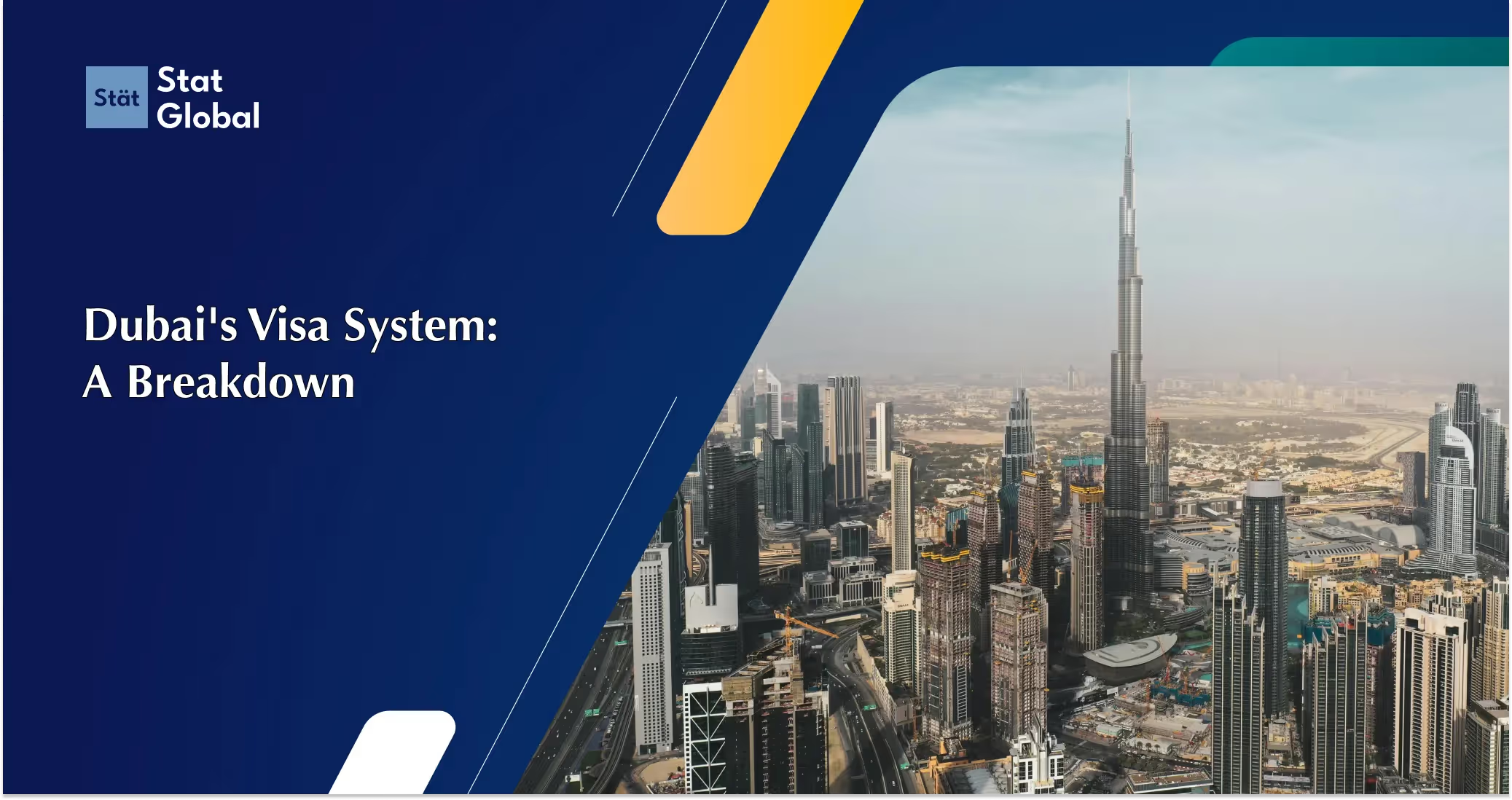
Dubai's Visa System: A Breakdown
Dreaming of owning property in Dubai? As a global hub for business and tourism, Dubai offers a thriving real estate market. However, navigating this landscape requires a deep understanding of the local visa system.
In this comprehensive guide, we'll explore the various visa options available to foreign investors, the benefits of obtaining residency, and the factors influencing visa durations. We'll also delve into the specifics of property ownership in Dubai, including freehold areas and the advantages of investing in this dynamic city.
Whether you're a seasoned investor or just starting your real estate journey, this guide will provide you with the essential information to make informed decisions and achieve your investment goals in Dubai.
Unveiling Dubai's Visa Options: A Tailored Approach
When considering real estate investment, it's crucial to differentiate between tourist and investor visas. While tourist visas offer a convenient option for short-term stays and property exploration, they come with significant limitations. Tourist visas typically have a validity period of 30 or 60 days, making them unsuitable for long-term investment planning. Additionally, these visas need to grant residency permits, hindering your ability to fully manage your property or establish a business presence in Dubai.
Investor visas, on the other hand, provide a more comprehensive solution. These visas offer extended validity periods, often 3 to 10 years, depending on the specific visa category. More importantly, investor visas come with residency permits, allowing you to live in Dubai and manage your property investment effectively. This enhanced flexibility empowers real estate investors to capitalize on market opportunities and enjoy Dubai's lifestyle benefits.
Exploring Investor Visa Options: Finding the Perfect Fit
Dubai's investor visa program recognizes the diverse investment strategies of international investors. Here's a breakdown of the primary investor visa categories:
- Property Investment Visa: This popular option grants residency permits for a minimum investment of AED 1 million (approximately USD 272,250) in freehold (ownership) properties. The invested amount can be distributed across multiple properties, offering flexibility for investors with specific budget considerations. According to a Dubai Land Department report, property prices in Dubai have grown by 7.1% year-on-year in Q2 2024, highlighting the potential returns on investment.some text
- Depending on the value of your property, you may be entitled to different types of residency visas. For properties valued above AED 1 million, you may be entitled to a 2-year residency visa. For properties valued above AED 5 million, you may be entitled to a 5-year residency visa. For properties valued at above AED 10 million, you may be entitled to a 10-year residency visa.
- Depending on the value of your property, you may be entitled to different types of residency visas. For properties valued above AED 1 million, you may be entitled to a 2-year residency visa. For properties valued above AED 5 million, you may be entitled to a 5-year residency visa. For properties valued at above AED 10 million, you may be entitled to a 10-year residency visa.
- Company Formation Visa: This visa is ideal for investors seeking to establish a business presence in Dubai. Investors can obtain a residency permit by registering a company with a minimum paid-up share capital of AED 150,000 (approximately USD 41,000). This visa category opens doors to a broader range of investment activities, including developing property ventures or managing rental properties through a company structure.
Streamlining the Visa Application Process: A Step-by-Step Guide
The Dubai visa application process can appear intricate at first glance. However, with the proper guidance, it can be navigated efficiently. This high-level overview provides an essential roadmap:
- Choose the appropriate investor visa category based on your investment goals.
- Gather all required documents, including passport copies, property ownership documents, bank statements, and business registration details (if applicable).
- Submit your application to the relevant authorities, typically the Department of Economic Development (DED) or the General Directorate of Residency and Foreigners Affairs (GDRFA).
- Pay the prescribed visa fees and undergo a medical fitness test.
- Once approved, collect your visa and residency permit.
While this outline provides a general framework, it's important to acknowledge the complexities involved in the visa application process. Regulations and procedures can change, and specific requirements may differ depending on your circumstances. For a smooth and error-free application experience, we strongly recommend seeking professional guidance from experienced visa consultants or legal specialists familiar with Dubai's real estate investment regulations.
Additional Considerations
- Visa processing times: Visa processing times vary; it's generally advisable to start the application process well before your planned move to Dubai. This allows ample time for document verification and potential revisions.
- Dependents' visas: If you plan to relocate with family, ensure you understand the requirements and procedures for obtaining visas for your dependents.
- Post-approval formalities: Once your visa is approved, you may need to complete additional formalities upon arrival in Dubai, such as registering your residency and obtaining an Emirates ID.
- Professional assistance: Consider engaging the services of a reputable immigration consultant to guide you through the visa application process and address any potential challenges.
- Staying updated: Monitor official government websites and consult with immigration experts to stay informed of any changes to Dubai's visa regulations.
By following these guidelines and seeking professional assistance when necessary, you can navigate Dubai's visa system with confidence and unlock the exciting opportunities that await in this dynamic real estate market.
Curiosities you might not know about Dubai
Foreigners in Dubai can own property in designated freehold areas, enjoying absolute ownership without time restrictions. They can also lease properties for up to 99 years in specified areas. The Land Department issues title deeds, and there's no age requirement for property ownership.
While purchasing a property in Dubai can be advantageous, obtaining a residency visa is a separate process. Investing in a property worth AED 750,000 or more can qualify for a 2-year residency visa, renewable every two years.
Dubai offers several tax advantages for real estate investors. There's no income tax on rental income, meaning you keep the full amount. Additionally, capital gains tax doesn't apply, allowing you to profit from property appreciation without paying taxes. Moreover, most areas in Dubai don't have property tax, reducing your holding costs.
Knowledge is Power
Understanding Dubai's visa system empowers you to make informed decisions about your real estate investment journey. Investor visas offer significant advantages over tourist visas, providing the long-term security and flexibility crucial for successful property ownership in Dubai.
Ready to take the next step?
Contact Stat Global today to schedule a consultation and explore how our expertise can guide you through the visa application process and help you achieve your real estate goals in Dubai.


.svg)










